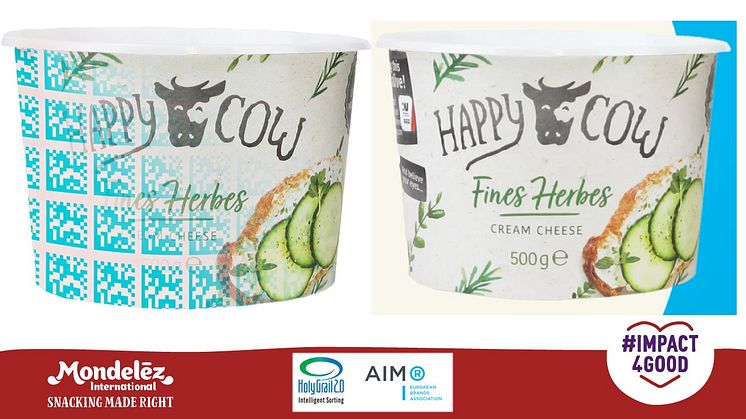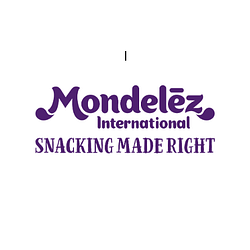
Press release -
Mondelez International partners with AIM to trial digital watermarks for smarter packaging recycling in Europe
Mondelez International partners with AIM to trial digital watermarks for smarter packaging recycling in Europe
Mondelez International has partnered with AIM - the European Brands Association - alongside other European companies and organisations, to trial a pioneering digital technology, to assess whether it could enable better sorting and higher-quality recycling rates for packaging in the EU.
One of the biggest obstacles to creating a circular economy is the sorting of post-consumer waste by accurately identifying packaging, which would result
in more efficient and higher-quality recycling. As part of a cross-value chain initiative under the name of “HolyGrail 2.0”, an industrial pilot has been launched to prove the viability of digital watermark technologies for more accurate sorting of packaging and higher-quality recycling, as well as the business case at scale.
This collaboration forms part of Mondelez international’s global strategy to deliver against its long-term vision for zero-net waste packaging by 2025, through supporting industry coalitions and public-private partnerships to improve recycling infrastructures and create a circular economy so that waste becomes a valued commodity and stays within the economy rather than ending up in the environment. Mondelēz is committed to making 100% of its packaging recyclable and labelled with consumer information by 2025 as part of it ‘Pack Light and Pack Right’ approach.
Michael Stumpf, Europe RDQ Packaging Sustainability Manager, Mondelez International said: “We are excited to be joining this innovative pilot, HolyGrail 2.0 is a further step towards our goal of zero-net waste packaging by 2025. We want to remove barriers to recycling efficiency and believe that when business unites under a common goal we can create positive impact at scale for people and planet.”
Digital watermarks are imperceptible codes, the size of a postage stamp, covering the surface of a consumer goods packaging. They can carry a wide range of attributes such as manufacturer, SKU, type of plastics used and composition for multilayer objects, food vs. non-food usage, etc. The aim is that once the packaging has entered into a waste sorting facility, the digital watermark can be detected and decoded by a standard high-resolution camera on the sorting line, which then – based on the transferred attributes – is able to sort the packaging into corresponding streams. This would result in better and more accurate sorting streams, and thus consequently in higher- quality recyclates, benefiting the complete packaging value chain. Next to this “digital recycling passport”, digital watermarks also have the potential to be used in other areas such as consumer engagement, supply chain visibility and retail operations.
About AIM
AIM is the European Brands Association representing brand manufacturers in Europe on key issues which affect their ability to design, distribute and market their brands. AIM’s membership comprises 2500 businesses ranging from SMEs to multinationals, directly or indirectly through its corporate and national association members.
Website, including Q&A, membership and latest news:
www.aim.be/priorities/digital-watermarks
Topics
Categories
About Mondelēz International
Mondelēz International, Inc. (NASDAQ: MDLZ) empowers people to snackright in over 150 countries around the world. With 2018 net revenues ofapproximately $26 billion, MDLZ is leading the future of snacking with iconicglobal and local brands such as Oreo, belVita and LU biscuits; Cadbury DairyMilk, Milka and Toblerone chocolate; Sour Patch Kids candy and Trident gum.Mondelēz International is a proud member of the Standard and Poor’s 500,Nasdaq 100 and Dow Jones Sustainability Index.
Visitwww.mondelezinternational.com or follow the company on Twitter at www.twitter.com/MDLZ


